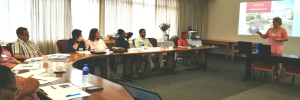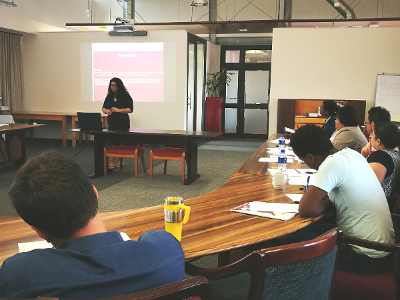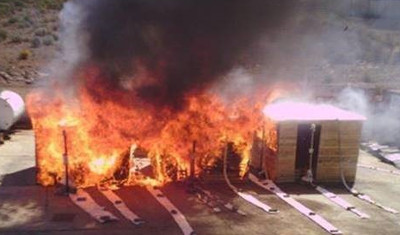
Social Impact orientation session
The Division for Social Impact recently hosted an orientation session for new staff members. The purpose of the event was to introduce participants to social impact as a strategic priority of Stellenbosch University (SU), as explained in the Social Impact Strategic Plan 2017–2022, to provide an orientation to the concepts and practices of engaged scholarship and engaged citizenship and highlight the support offered by the Division for Social Impact.
Dr Antoinette Smith-Tolken, director of the Division for Social Impact, spoke about the higher education (HE) landscape and the potential of SU to impact the post-school education and training sector through its scholarship and active citizenship engagements. “Higher education will be a vehicle to carry this forward through capacity building of community colleges. At Stellenbosch University we create knowledge with society and in society. What impact will your teaching, research and citizenship have with and in society?” she asked.

Mawethu Nyakatya, Manager: Engaged Scholarship, spoke about ways of being in the academe, examples of scholarship and support for engaged scholarship offered by the Division. “Societal challenges cannot be addressed by one faculty or discipline; we need to collaborate with others. We also play a consulting role and help plan initiatives between the University and partners,” he said.
Michelle Pietersen, Senior Programme Manager: MGD, highlighted the importance of connecting with communities in order to build the capacity of students and staff. MGD hosts two big experiences annually: the Social Impact Morning for new students at the start of the academic year and Mandela Day in July to introduce students and staff to engaged citizenship. MGD also offers community development training courses to staff, students and community leaders. “We build long-term relationships with community partners and provide an opportunity for students to do in-service work,” she said. MGD has developed a competency certificate for students that reflects the competencies students develop through their volunteer activities. Students who complete 100 volunteer hours have this reflected on their academic transcripts.
Avril Whate, Senior Programme Manager: MGD, shared her work involving collaboration with government and different stakeholders to create and sustain an effective healthcare service. “We need a holistic approach to healthcare, so we include the allied healthcare services in our clinics and at our Sarepta Old Age Home Outreach. Students also do health promotion,” she said.
Joanne Williams, Management Information Officer of the Division of Social Impact, demonstrated the value of registering social impact initiatives on the Social Impact Platform. “The platform allows staff to document their social impact activities and align the University’s expertise and interests with the needs of and collaboration opportunities with civil society, government and business. It is a means to support and enhance the work of staff and in a meaningful way also serves as a social learning space to inspire and model good practice for social impact within Stellenbosch University,” she said.

Participants engaged in discussions throughout the session, raising issues such as scaling student engagement for students who want to do more and getting students more involved in what they learn. Questions were also asked about how to take the tacit knowledge of students into account. Other issues raised were around community dependency versus the need for communities to function independently after engagements with SU. The ideal would also be for communities to consult among themselves in order to identify the partnership opportunities that can be presented to SU. It was felt that the University should be seen as a resource for all societal stakeholders.
